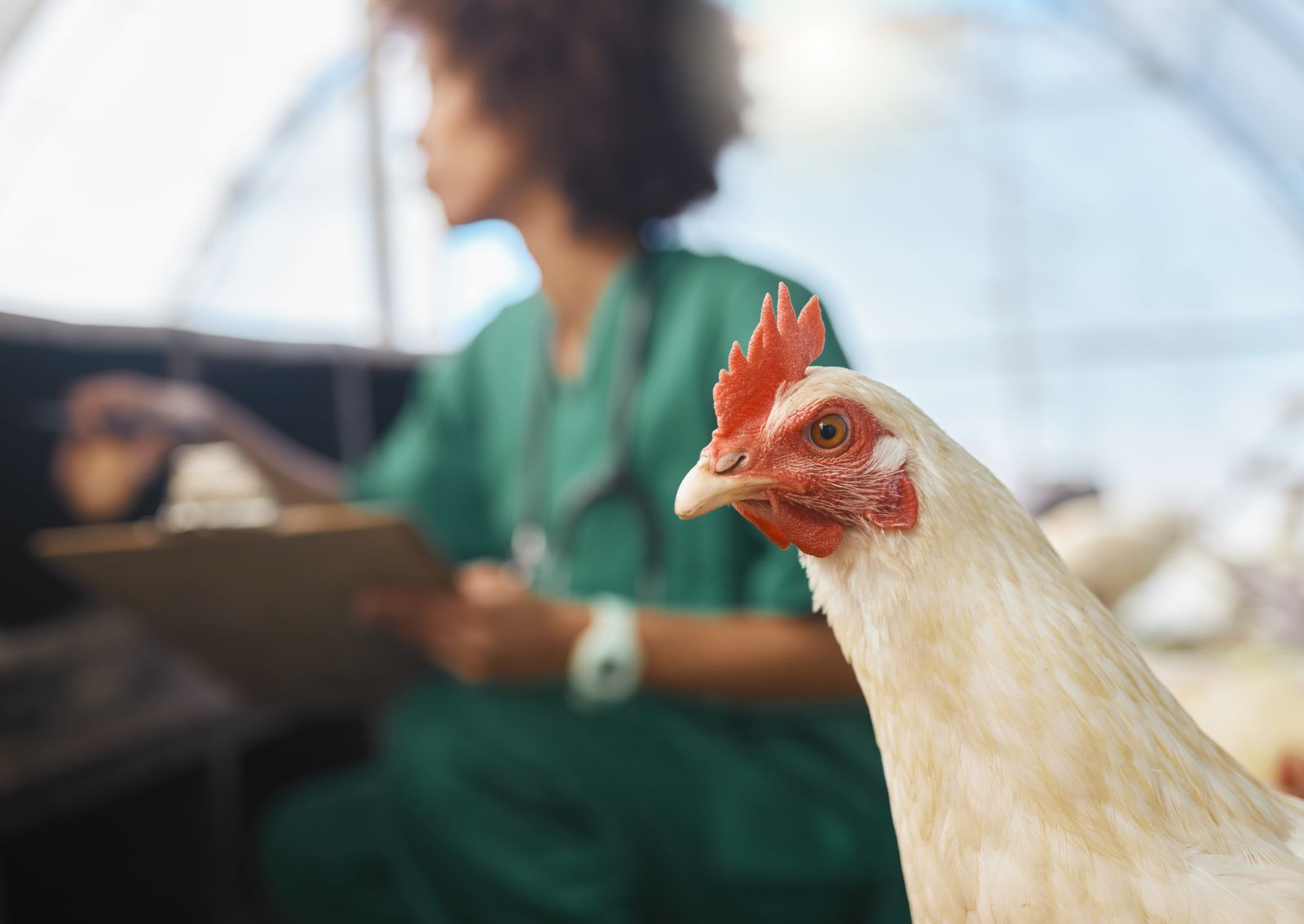If you are a chicken keeper in your backyard or the homestead, it can be distressing when your chickens have a health problem. A prolapsed vent is a problem you may encounter from time to time in your flock. What can you do if your chicken’s prolapsed vent won’t stay in?
A prolapsed vent on a chicken can be treated by isolating the chicken, cleaning the prolapse, treating it to reduce inflammation of the vent, repositioning the vent, and using a vent harness while the chicken heals. Consult a veterinary professional in serious cases or when unsure of the treatment.
Treating a prolapsed vent on a chicken can be a delicate process. You need to know how to rectify the problem, provide after-treatment care, and decide when your chicken needs professional help from a veterinarian. Our guide will help you through this issue and explain how to help your chicken with a prolapsed vent.
What To Do If Your Chicken Has A Prolapsed Vent
If you’re a chicken owner, you know that caring for your flock requires diligence and attention to detail. One of the health issues that can arise in chickens is a prolapsed vent, which can be a serious and even life-threatening condition if left untreated.
A prolapsed vent occurs when the tissue around the chicken’s vent is pushed out or protrudes, making it difficult for the chicken to lay eggs, defecate, or mate. A prolapse occurs when the tissue around the chicken’s vent becomes swollen and inflamed, causing the cloaca or vent to protrude from the body.
This can be a painful, uncomfortable experience for the chicken, and if left untreated, can even be life-threatening.
While a prolapsed vent can be caused by various factors, including egg-laying difficulties, infections, or injuries, it’s crucial to address the health issue promptly to prevent further complications.
Whether you’re a seasoned chicken owner or a beginner, this article will provide the knowledge and tools to deal with this common health issue and keep your chickens healthy and happy.
Identifying A Prolapsed Vent In Chickens
A prolapsed vent can be a frightening sight for any chicken owner. It’s important to recognize the signs of prolapse in your chicken so that you can take action promptly.
The outward physical signs of prolapse are as follows.
- Swollen and inflamed tissue around the vent
- A red or purple protrusion from the vent area
- A visible lump or mass around the vent
- Wet or matted feathers around the vent
There are also some behavioral changes in chickens with a prolapsed vent, which could be your first indication that all is not well with your chicken.
- Straining or difficulty laying eggs
- Lethargy or weakness
- Loss of appetite
- Increased aggression or irritability
If you notice your chickens presenting with any of these symptoms, acting quickly to prevent further damage or infection is important. A prolapsed vent can lead to serious health issues if left untreated, so it’s best to address it as soon as possible.
Treating Chicken With A Prolapsed Vent
Before we get to methods of preventing a prolapse in your chickens, let’s look at how you can help your chicken quickly to prevent the problem from escalating into a life-threatening issue.
One of the first and most basic treatments you can try is to bathe the chicken in warm water. This will help the chicken relax, clean the vent, and soothe the muscles around the vent. This simple treatment may result in the vent returning to its correct place by itself.
1. Isolate The Chicken.
Isolate the chicken to prevent further damage. Move the chicken to a separate, quiet area to prevent other birds from pecking at the prolapse or causing further stress.
Avoid handling the chicken more than necessary to prevent further irritation.
2. Clean The Prolapsed Area
Gently clean the area around the prolapse with warm water and a mild antiseptic solution, such as diluted Betadine.
Be careful not to push the prolapse further out or cause additional pain to the chicken.
3. Reduce Swelling And Inflammation
Apply a cold compress or ice pack to the prolapse to reduce swelling and inflammation. Aloe vera gel or coconut oil can also help to soothe the affected area.
4. Reposition The Prolapsed Vent
Gently push the prolapse back into the vent, taking care not to cause additional pain or injury to the chicken.
Ensure you wash your hands thoroughly before and after handling the prolapse to prevent the spread of infection.
5. Use A Prolapse Harness To Keep The Vent In Place
A prolapse harness can help to keep the prolapse in place while the chicken heals. These can be purchased online or made at home using materials like gauze or vet wrap.
6. Administer Antibiotics Or Pain Medication As Necessary
In more serious cases, your veterinarian may prescribe antibiotics or pain medication to help your chicken recover.
Follow all dosage instructions carefully and continue treatment for the full duration prescribed.
7. Monitor The Chicken Closely
Keep a close eye on your chicken’s behavior and physical condition while they recover. Check the prolapse regularly to ensure it stays in place and does not become infected or swollen again.
8. Consult A Veterinarian
Following these steps can allow you to help your chicken recover from a prolapsed vent. However, it’s important to note that more serious cases may require veterinary attention.
If your chicken is bleeding heavily or seems to be in significant pain or distress, seek veterinary care immediately.
Causes Of Prolapsed Vent In Chickens
There are a number of different contributing factors to a prolapsed vent in chickens. I have detailed some of the most common causes so you can try to pinpoint the reason for your chicken’s problem to prevent it from reoccurring.
- Straining during egg-laying. Chickens that lay very large or frequent eggs may be more likely to experience a prolapse. Lack of proper nesting material or space can also cause hens to strain during egg-laying.
- Nutritional deficiencies. A lack of calcium or other nutrients essential for egg production can lead to weakened muscles around the vent area, making a prolapse more likely. Check that the food you feed your chickens provides them with their dietary needs.
- Disease or infection. Certain illnesses or infections can cause swelling or inflammation in the tissues around the vent, leading to prolapse. Parasites or other internal issues may also contribute to prolapse frequency.
- Genetic predisposition. Some chicken breeds may be more prone to prolapsed vent due to genetic factors.
Understanding the common causes of prolapsed chicken vents helps you take steps to prevent this condition from occurring in your flock. If you are experiencing frequent vent prolapses in your chickens, you may need to consult a veterinary practitioner to help you find the root cause.
Preventing Prolapsed Vents In Chickens
Preventing prolapsed vents in chickens is always better than treating them after they occur. Many vent prolapses can be prevented by proper care and housing for your chickens.
As chicken owners, we must take every precaution we can to prevent such health issues and keep our chickens happy and productive.
The following health and housing precautions can help to reduce the risk of vent prolapses in your chicken flock.
- Provide proper nesting material and space. Provide plenty of clean, dry nesting material to make egg-laying more comfortable for your chickens. Ensure that your chickens have enough space in the nesting boxes and that they are not overcrowded.
- Feed your chickens a balanced diet. Feed your chickens a balanced diet that includes sufficient amounts of calcium and other essential nutrients for egg production. Avoid overfeeding or underfeeding, which can contribute to health issues in chickens.
- Keep your chickens healthy. Regularly check your chicken flock for signs of illness or injury, and take action promptly if needed. Keep your coop and nesting areas clean and dry to prevent the spread of disease or infection.
- Practice good flock management. Observe your chickens daily and handle them gently to reduce stress and prevent injuries. Separate any birds that are exhibiting aggressive behavior toward others.
You may still experience chicken vent prolapses in your flock if you take these precautions, but these steps will definitely lower the risk of this problem occurring in your flock.
Conclusion
A prolapsed vent can be a painful and potentially life-threatening condition for chickens, but there are precautions you can take to prevent it from happening in the first place. If you do notice a prolapsed vent in one of your chickens, it’s important to act quickly to prevent further damage or infection.
Remember, if your chicken is bleeding heavily or seems to be in significant pain or distress, seek veterinary care immediately. With proper care and attention, your chicken can recover from a prolapsed vent and go on to live a healthy, happy life.
References
https://www.betterhensandgardens.com/curing-a-prolapsed-chicken-vent/
https://www.backyardchickens.com/threads/prolapsed-vent-wont-stay-put.79410/


